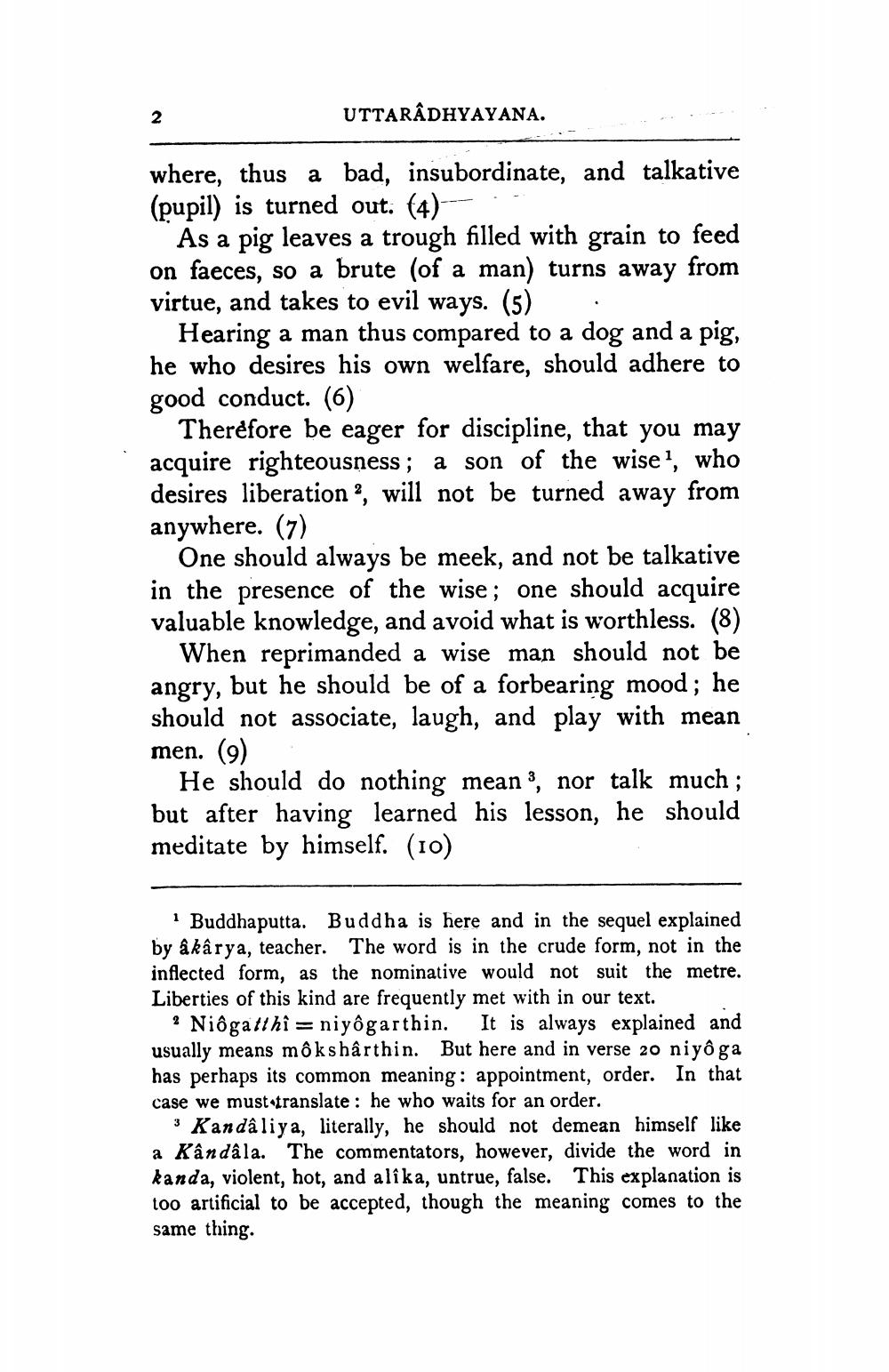________________
UTTARADHYAYANA.
where, thus a bad, insubordinate, and talkative (pupil) is turned out. (4) --
As a pig leaves a trough filled with grain to feed on faeces, so a brute (of a man) turns away from virtue, and takes to evil ways. (5) .
Hearing a man thus compared to a dog and a pig, he who desires his own welfare, should adhere to good conduct. (6)
Therefore be eager for discipline, that you may acquire righteousness; a son of the wise!, who desires liberation , will not be turned away from anywhere. (7)
One should always be meek, and not be talkative in the presence of the wise; one should acquire valuable knowledge, and avoid what is worthless. (8)
When reprimanded a wise man should not be angry, but he should be of a forbearing mood; he should not associate, laugh, and play with mean men. (9)
He should do nothing mean?, nor talk much ; but after having learned his lesson, he should meditate by himself. (10)
Buddhaputta. Buddha is here and in the sequel explained by âkârya, teacher. The word is in the crude form, not in the inflected form, as the nominative would not suit the metre. Liberties of this kind are frequently met with in our text.
? Niôgatthî = niyôgarthin. It is always explained and usually means môks hârthin. But here and in verse 20 niyôga has perhaps its common meaning: appointment, order. In that case we must-translate : he who waits for an order.
3 Kandâ liya, literally, he should not demean himself like a Kân dâla. The commentators, however, divide the word in kanda, violent, hot, and alîka, untrue, false. This explanation is too artificial to be accepted, though the meaning comes to the same thing.
all order.




